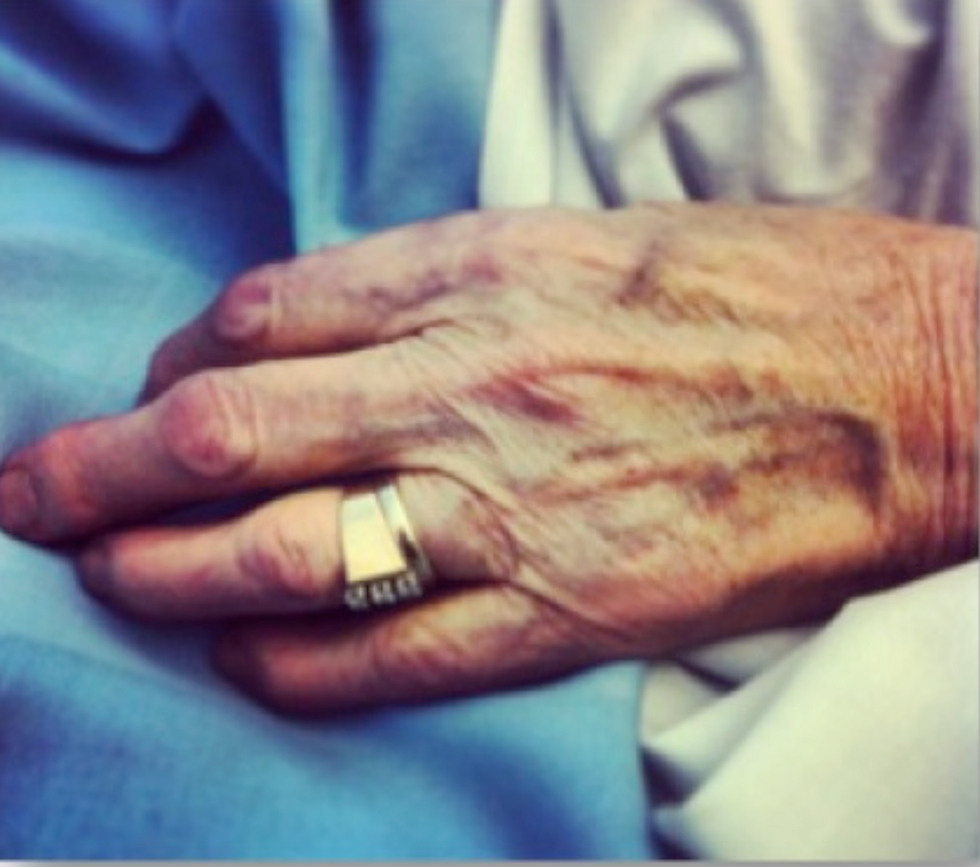Oska Bright: A week of belonging
- Sue Robins

- Mar 24, 2024
- 4 min read

“I tell him I have value. Over and over and over.” -Jamie Hale, poet
In early March, we had the privilege of accompanying our son Aaron to the Oska Bright Film Festival in Brighton, UK. He is the co-lead in the short film Chicken, which had its UK premiere at the film festival, and was chosen as Best of the Fest. Aaron was also nominated for Best Performance out of all the dozens of films screened at the festival.
We have been to other film festivals with Chicken. I can tell you that Oska Bright was different and I’ve reflected on why.
Oska Bright is dedicated solely to showing films produced by and featuring people with learning disabilities and autism. (Learning disabilities includes intellectual and developmental disabilities, which are the terms commonly used in Canada).
The film fest was held in a gorgeous performing space, the Brighton Dome Corn Exchange, not in some crappy church basement or community room (as is often the case for events for disabled people). The social media promotions throughout the festival week were strong and professional. These artists were getting the attention they deserve. We had the added delight of seeing the famous Drag Syndrome troop perform live at the awards ceremony.
Typical film festival receptions can be rather stuffy events. Not so at Oska Bright, the friendliest and most open-hearted festival on Earth. You simply go up to someone and introduce yourself and voila, an instant connection, handshake, swapping of Instagram accounts, and promises to attend each other’s movies. Lucy McNulty, Aaron’s co-star and a seasoned actor herself, said she was amazed at the lack of pretence at Oska Bright. We were all rooting for each other.
It was at an Oska Bright reception that we met the powerhouse team of Otto Baxter, Peter Beard and Bruce Fletcher from Story Films. They were there to screen two films – one a feature-length documentary about Otto called Not a F***ing Horror Story and Otto’s film, The Puppet Asylum. Both these films should be required viewing for all families and folks who work with adults who have Down syndrome. To borrow a British term, I was gob-smacked at the insight into Otto’s experience growing up.
Here's the trailer for Otto’s documentary. (Somebody, please help me get Otto's films to Canada).
Otto and Aaron hit it off immediately, swapping super hero and horror movie character impressions at the reception.

Bruce and Peter generously met up with us a few days later in London after work at a pub.

They shared in the question and answer after their film screening that it took four long years to secure funding for Otto’s film. I asked what moved the needle on this. Bruce said it was this talk by Jack Thorne at the Edinburgh TV Festival in 2021.
Jack Thorne's talk was a strong condemnation of the idea of 'two-tier' lives that slithered out from under a rock during the pandemic. Jack also makes a call for action to strengthen disabled talent representation in TV and film.
“The problem is we don’t empower disabled talent.”
Jack goes on to describe the ‘feeling of belonging’ he felt when he joined the disabled community. Belonging is exactly what Aaron and the rest of us felt at Oska Bright. I'm hankering a guess that this is because the learning disabled community is acutely aware of the pain of being excluded and so they work hard to counter that pain and make sure everybody feels included.
What is belonging exactly? It is about been accepted and celebrated exactly as you are. It is being a member of something bigger than yourself. It is having value by just being human.
“Disabled stories need to be told. And when they are told, they need to be told by disabled people.”
We saw many films at Oska Bright that featured disabled talent in front of and behind the camera. Creativity and innovation flourishes in the learning disabled community if only funders were more open to looking for these stories.
“We should run towards complexity.”
Yes, it takes more work to accommodate disabled artists on film and television sets. But you know what? It is worth it. As Lucy says, "When you are inclusive, it benefits everybody."
Telling the same stories over and over has gotten very stale. It is time to platform stories that have yet to be given space.
“Disability IS diversity.”
This is an important point. I’d venture a guess that learning disabled stories are often overlooked even in the broader disability community, which can have its own bias about who is ‘smart’ and who is not. That’s why Oska Bright was so refreshing. All the people were brilliant in their own way. It is brilliant to be unabashedly yourself in a world that narrowly judges you by your IQ.
Oh, and about Aaron’s nomination for Best Performance. To our pure delight, he won that award. He tells us that 'I was honoured. I was so pleased."
Here's a clip of Aaron's speech:
If you take away nothing else from this essay, reflect on Aaron’s words:
"People with disabilities can act."
Oska Bright gave people with learning disabilities an opportunity to showcase their art in a safe space. Canada, sit up and pay attention. The UK is so much further ahead than we are as far as supporting these artists and their stories.
We need more representation of learning-disabled talent asap. Their stories deserve to be told. It has been a long time coming.




Comments